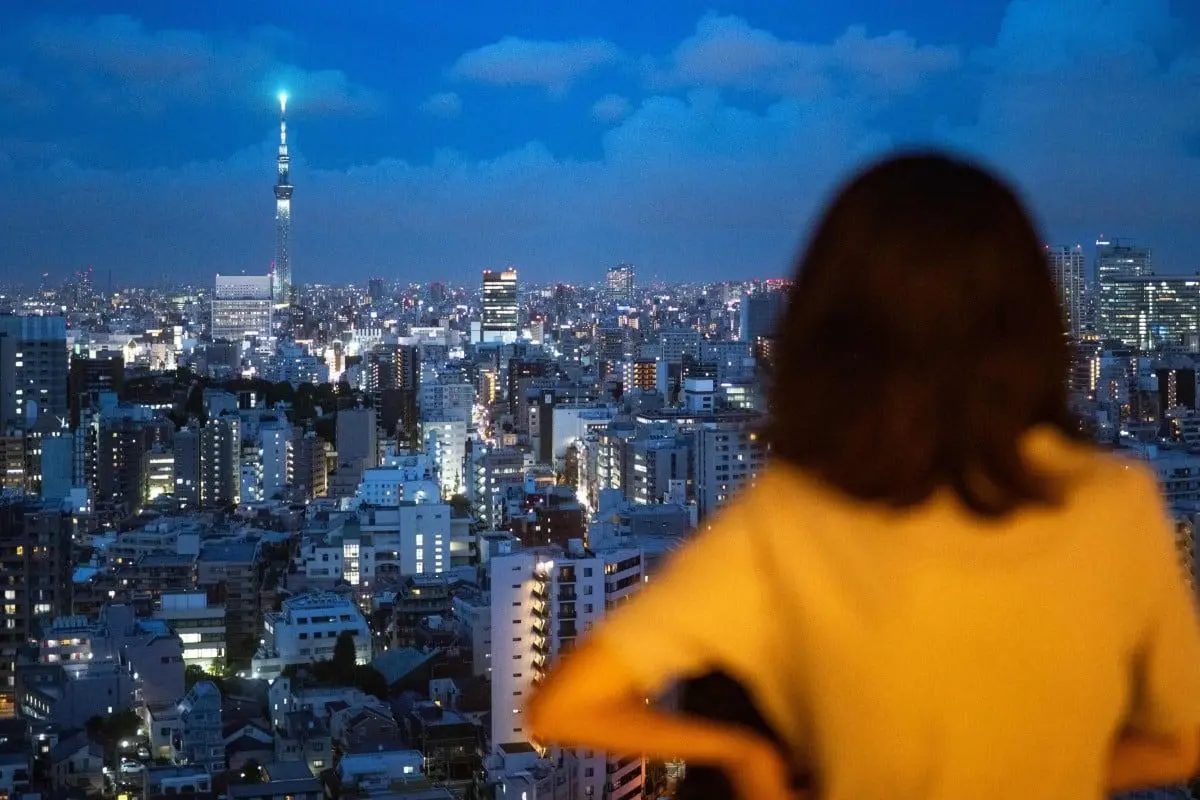Hub for sex tourism—Tokyo’s recent transformation into a focal point for this controversial industry has drawn significant attention globally.
Japan’s capital, once primarily known for its technological advancements, rich culture, and economic prosperity, now finds itself facing an uncomfortable reality: a growing underground sex trade fueled by economic hardship and a surge in international visitors seeking illicit pleasures.
Reports suggest that rising poverty, especially among young women, is driving many into this industry. Coupled with a weakening yen and post-pandemic travel influx, the city is experiencing an unprecedented rise in sex tourism.
The Economic Backdrop: Rising Poverty and Economic Strain
Japan’s economic challenges have deepened in recent years, exacerbated by global events and internal economic policies. Once one of the world’s most prosperous nations, Japan is now grappling with a weakening yen, stagnant wages, and rising inflation.
This economic strain has particularly impacted Tokyo, where the cost of living remains high, and opportunities for stable employment have diminished.
According to Yoshihide Tanaka, secretary general of the Liaison Council Protecting Youths (Seiboren), the poverty crisis has significantly worsened.
“Japan has become a poor country,” he noted, reflecting a sentiment that would have seemed unthinkable decades ago. The economic downturn has had a profound impact on Tokyo’s younger population, particularly women in their late teens and early twenties.
Read : Japanese Man Celebrates Sixth Anniversary with Virtual Wife Hatsune Miku
Many of these young women, faced with limited job prospects and mounting debts, have turned to the sex industry as a means of survival.
Read : Shibuya Crossing: The Heartbeat of Tokyo
The phenomenon has been most visible in neighborhoods like Kabukicho and parks such as Okubo Park, where the presence of sex workers has become increasingly common. This shift has not only altered the social fabric of these areas but also attracted foreign tourists seeking illicit experiences.
Tokyo – Hub for sex tourism
One of the most striking aspects of Tokyo’s burgeoning sex industry is the influx of foreign tourists. As post-pandemic travel restrictions eased, a notable increase in international visitors, particularly from China, has been observed. These tourists are drawn not only by Tokyo’s traditional attractions but also by its underground sex trade.
Kazuna Kanajiri, a representative of Paps, a nonprofit supporting victims of sexual violence, highlighted that certain areas in the city have essentially become part of the “tourism experience.”
This trend has raised alarms among activists and lawmakers, who worry about the long-term implications for both the individuals involved and Japan’s international reputation.

Kazunori Yamanoi of the Constitutional Democratic Party of Japan expressed concern about the broader impact of this trend. “The reality is that Japan has become a country where foreign men can obtain young women and essentially buy sexual services,” he stated.
Yamanoi’s remarks underscore the tension between economic necessity and moral concerns, as well as the potential damage to Japan’s image abroad.
Despite laws prohibiting prostitution, enforcement remains inconsistent. The current anti-prostitution law in Japan bans the buying and selling of sexual services involving penetration but does not cover other forms of sex work.
Moreover, the law primarily targets the sellers—the women—rather than the buyers, creating a legal and ethical imbalance. This has left many women vulnerable to exploitation, violence, and extortion, with little recourse for protection or justice.
Social Consequences: Vulnerability and Violence
The rise of sex tourism in Tokyo has far-reaching social consequences, particularly for the women involved. Many of these women enter the industry out of economic desperation, often to pay off debts related to host clubs or underground male idols.
According to the Metropolitan Police Department (MPD), around 43% of women arrested for street prostitution in 2023 cited such debts as their primary motivation.

Host clubs, which are particularly prevalent in areas like Kabukicho, play a significant role in this dynamic. These establishments charge exorbitant fees for male companionship, often creating a cycle of financial dependency and exploitation.
Women who work in the sex industry to pay off these debts face immense pressure to meet daily quotas, further entrenching them in a cycle of poverty and vulnerability.
Violence against sex workers has also increased, with many women reporting physical assaults and extortion. Despite promises from law enforcement to crack down on violent acts, many feel that the focus remains on punishing street prostitution rather than addressing the underlying issues.
The police’s approach has been criticized for targeting the women involved rather than the systemic factors that drive them into the industry.
Nonprofit organizations like Paps have stepped in to provide support, but the scale of the problem requires more comprehensive solutions. Advocacy groups are calling for stronger regulations to protect sex workers and address the root causes of poverty and exploitation.

They argue that a more holistic approach—one that includes economic support, education, and legal reforms—is necessary to address the complex realities of the sex industry in Tokyo.
Tokyo’s emergence as a hub for sex tourism is a multifaceted issue that reflects broader economic and social challenges. Rising poverty, particularly among young women, has created a fertile ground for the expansion of the sex industry.
The influx of foreign tourists seeking illicit experiences has further complicated the situation, raising questions about Japan’s regulatory framework and its ability to protect vulnerable individuals.
The case of Tokyo highlights the need for a balanced approach—one that addresses both economic hardship and the ethical implications of sex tourism. Stronger regulations, better support systems for vulnerable populations, and a more nuanced approach to law enforcement are essential.
As Japan navigates these challenges, the world will be watching closely, hoping for solutions that prioritize both economic recovery and human dignity.

